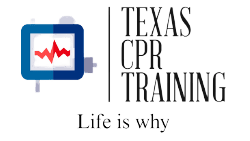Aspirin During a Heart Attack
Heart attacks are a leading cause of death worldwide, and they can strike at any time. Fortunately, there is an effective way to increase a person’s chances of surviving a heart attack: chewing an aspirin. In this article, we will explore the benefits of aspirin during a heart attack, including how it works, why it is so effective, and the proper way to take this medication.
Aspirin: A brief History
Aspirin has been around for more than a century, and it was originally developed as a pain reliever. However, over time, researchers discovered that aspirin also has a blood-thinning effect, making it useful for preventing heart attacks and blood clots.
How Aspirin Works During a Heart Attack
During a heart attack, a blood clot forms in one of the arteries that supply blood to the heart. This clot can block the flow of blood, causing part of the heart muscle to die. Aspirin works by blocking the formation of blood clots, which can reduce the damage done to the heart during a heart attack. When a person takes aspirin during a heart attack, the drug helps to prevent the clot from getting bigger. If taken early enough, aspirin can also help to dissolve the clot, restoring blood flow to the heart.
Why Aspirin is So Effective
Studies have shown that taking aspirin during a heart attack can significantly increase a person’s chances of surviving. In fact, some studies have found that aspirin can reduce the risk of dying from a heart attack up to 23%. One reason why aspirin is so effective is that it works quickly. When taken orally, the drug can start working within 30 minutes, reducing the time that the clot has to cause damage to the heart. Another reason why aspirin is effective is that it is inexpensive and widely available. This means that people all over the world can access this life-saving medication.
How to Take Aspirin During a Heart Attack
If you or someone you know is experiencing the symptoms of a heart attack (chest pain, shortness of breath, nausea), it is important to act quickly. The American Heart Association recommends that people who are having a heart attack should chew and swallow one adult-strength (325 mg) aspirin as soon as possible. This can help to reduce the size of the clot and improve the chances of surviving.
Conclusion
Aspirin is a powerful tool in the fight against heart attacks, and it is important that people understand its benefits and how to use it properly. By taking aspirin during a heart attack, individuals can significantly increase their chances of surviving and avoiding long-term damage to the heart. If you or someone you know is experiencing the symptoms of a heart attack, remember to act quickly and take aspirin as soon as possible.
American Heart Association
Harvard Health Publishing
Mayo Clinic
Bayer Aspirin
Medline Plus
